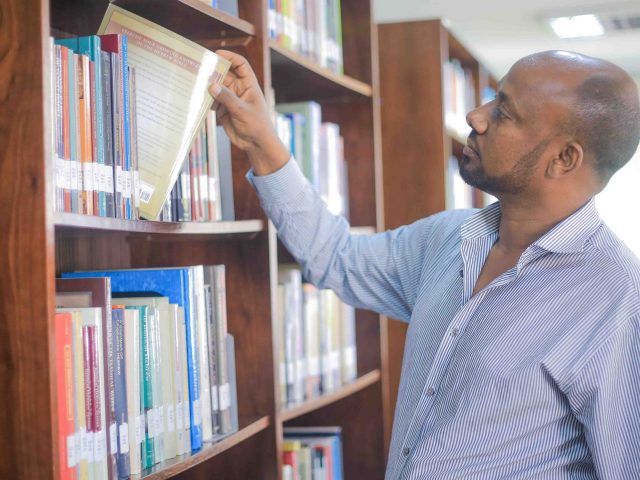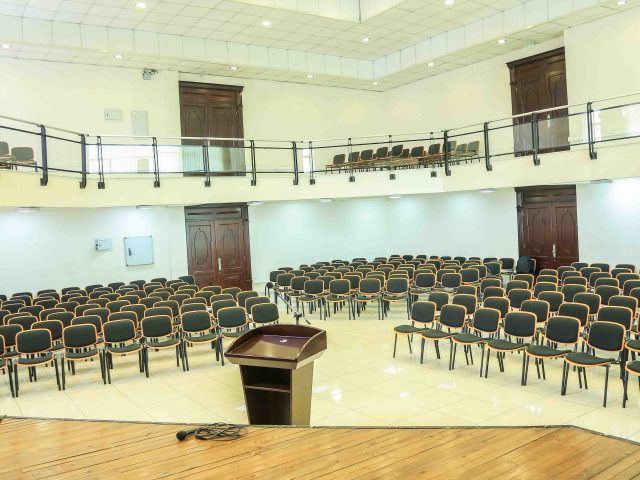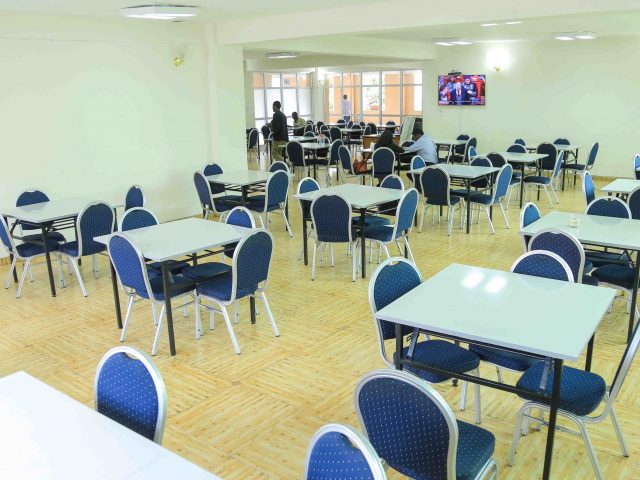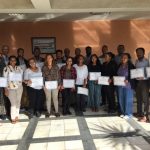
Participants of Positive Youth Development and Healthy Sexuality training called for an adolescent friendly, youth sensitive church. Conducted from January 22-26, 2024 at the Ethiopian Graduate School of Theology (EGST), 20 participants joined the training of trainers which was organized by EGST Faith Leaders Capacity Development Project. The training was part of the Youth Empowerment Implementation Programme from 2024-2026 in partnership with Act Church of Sweden.

Participants involved in the training included EGST staff, alumni, students, denominational youth leaders, and NGOs. They deliberated on ideal and practical youth friendly programming, including different components to address youth needs with a focus on physical, psychosocial, cognitive and spiritual development of youth.
Topics covered in the training included: principles of positive youth development, life skills, human sexuality, youth friendly church/youth programming and the role of peer education.
Challenges related to financial constraints, lack of active youth involvement, controversies on human sexuality and lack of facilities for youth activities were highlighted and will be addressed as the implementation progresses.
Participatory facilitation methods were demonstrated by the experienced trainers to be replicated by the trainees in the post training implementation. Learners recommended that the training to be replicated elsewhere and committed to implement in their respective institutions.
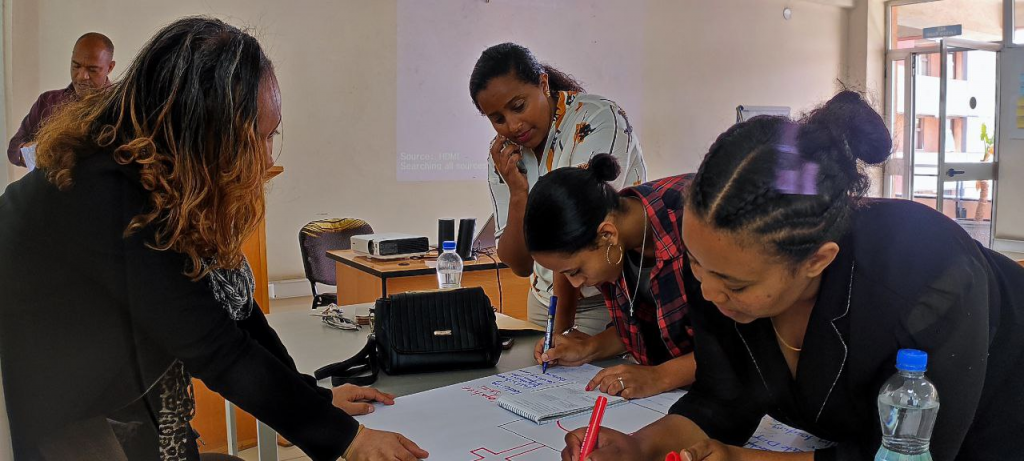
Pastor Tsehayu Amare, one of the training participants from the Evangelical Churches Fellowship of Ethiopia, he has shared his testimony as follows:
This training is very important for us. We were ministering to youth without understanding them. It was very difficult. But in this training, I have learned many things. For instance, I have gained insight to serve the youth better, it is important to understand their situation and the needs first.
There is a youth program and youth ministers in the church. However, there is a gap which needs to be considered to produce a better result. Pastor Tsahayu also mentioned:
Though we were ministering youth for the past many years, I came to understand now that we were not doing it properly. In these five days training, I got good understanding and inputs on ”how to minister the youth”. I have a chance to evaluate myself and get a significant input to serve them better.
Pastor Tsehayu pledged to implement the training by mentioning that he and his fellow ECRFE colleague, Admasu, are planning to create awareness for other minsters, share experience and work together.
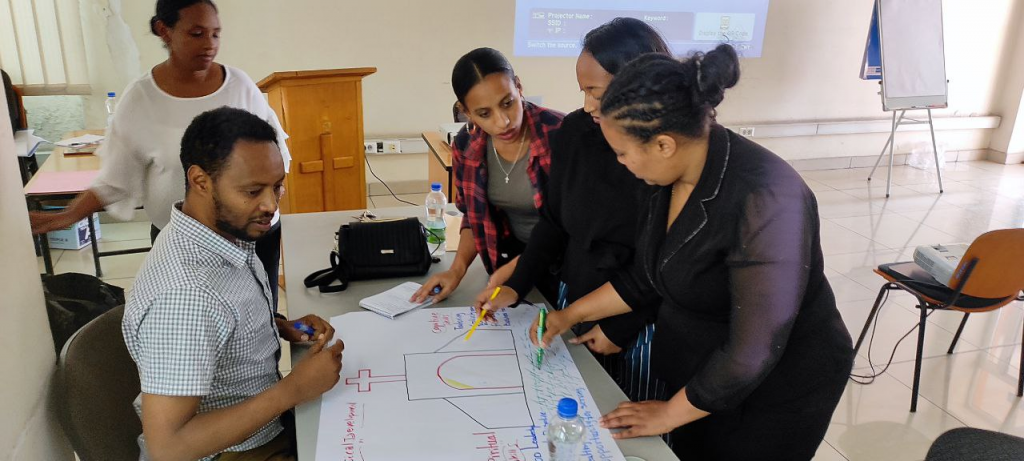
Pastor Ermias G/Medihen came from the Ethiopian Full Gospel Believers Church (EFGBC), Childern, Youth and Family Department and shared his reflection at the end of the training:
I am happy to take part on this training. I have learned a lot. Understanding youth, knowing them, their challenges (such as unhealthy sexuality) are the issues we have discussed well.
Pastor Ermias further mentioned about the contemporary church setting for youth:
There is no clear setting in the church concerning the healthy sexuality and the challenges designed by others. There is and old and traditional way of teaching youth. The churches are only concerned about the spiritual aspects while the youth need holistic development. But in this training, we have got a direction to focus on the holistic development of youth by using a Positive Youth Development model. I have noticed that we (the church) were reactive than proactive. We focus on the effect than the root cause. We have discussed the youth friendly church qualities and components which we can change into practice. We have also learned facilitation skills which is a plus for our interaction with the youth.
Pastor Ermias has put the following as a way forward,
Based on the knowledge and skills we got in these five days exposure, we have to revise the existing and the old training approach, and start adopting this kind of training approaches. We will also contextualize, and plan to implement it in our churches.
I kindly request EGST to strengthen the partnership with the denominations as usual. Also, for we’ve observed a good quality on EGST staff and the facilitators which we suggest to keep up. We also need your persuasion and follow up of the progress as earlier.
Dr. Lidia Tefera is one of the training participants from EECMY Children Ministry Department. She was very pleased with the content and methodology of the training. She reported her reflection as follows:
You have ignited us again to feel more responsible for the generation we are serving and we are not going to quit what we have started. I am grateful for such facilitators with expertize on the subject matter. They have helped us to see the current situation of the youth and how we can address their holistic needs. We have got all the resource, content and facilitation skills now and the next step is to put this to practice. We were discussing on the way forward with my colleague who came from EECMY Youth Ministry Department, and planning to start with awareness raising for leaders so that they can engage in the implementation.
We seek to subject our thoughts and actions to God’s Word and affirm the power of Scripture to effect change in individual lives, churches and society.
We come together as a community of learners not for our sake only but also for the sake of others. We seek to grow in our understanding of God and his ways, so that we may help others to acknowledge his governance over the world with its rich possibilities for both individual transformation and for social and cultural renewal.
We believe that theological education speaks to and out of its local context as a dynamic interaction between the local context, the global context and Scripture.
We strongly believe that unity among the churches of Ethiopia is important and can be fostered through cooperative, inter-denominational graduate-level theological education. We also seek to partner with individuals, institutions, churches and organizations within and outside Ethiopia.
We value learning alongside people from different traditions and churches. Exposure to varying traditions challenges thinking about God and the diversity of his work in the world. While EGST promotes unity, it also appreciates and respects diversity.
We value the importance of worshipping God with our minds and strive for excellence both in our rigorous study of Scripture and in our critical analysis of context.
We seek to be people who model Christ’s values such as love, humility, compassion, justice, integrity, self-control, and holiness.
We seek to promote ecumenical relationships among churches in Ethiopia in order to enhance mutual understanding.

